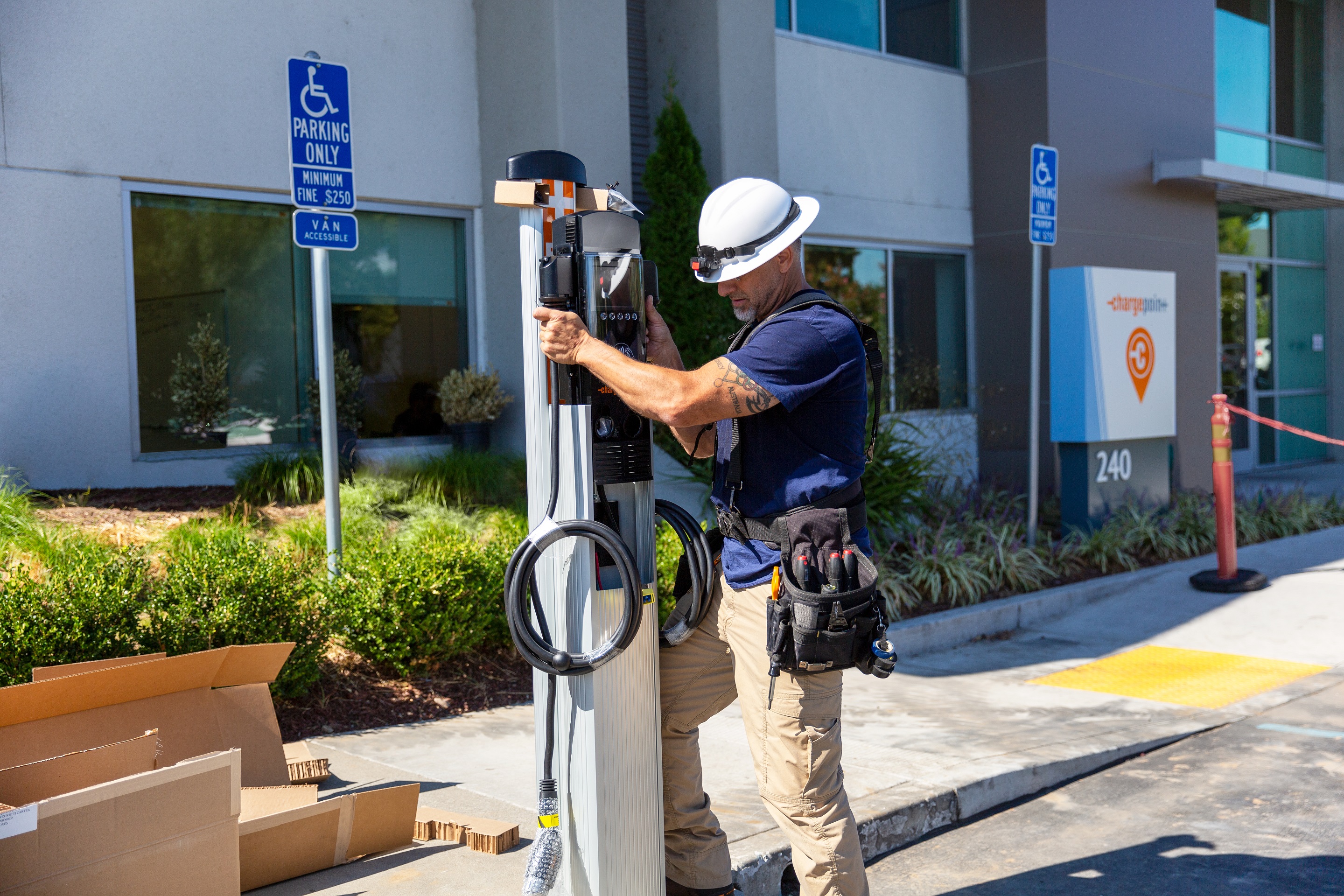The planned switch from the internal combustion engine (ICE) to electric power for the millions of vehicles needed for every day use in the U.S. has several growing pains evident. At present, the cost per electric vehicle is much higher than for an ICE car or truck. The costs are coming down, as auto companies realize the manufacturing scale necessary to produce EVs at the lower costs the public demands. The biggest step, which can’t wait for the changeover, is to implement the infrastructure of electric charging stations to compete with the vast gasoline and diesel network that has been put in place over more than a century.
Legislation in 2021, known as the Bipartisan Infrastructure Bill, allotted around $550 billion in new federal investment in America’s roads and bridges, water infrastructure, resilience, internet, and more. The bill includes $7.5 billion to build out the first-ever national network of EV chargers in the United States and is a critical element in the Administration’s plan to accelerate the adoption of EVs to address the climate crisis and support domestic manufacturing jobs.
The bill will provide funding for deployment of EV chargers along highway corridors to facilitate long-distance travel and within communities to provide convenient charging where people live, work, and shop. Federal funding will have a particular focus on rural, disadvantaged, and hard-to-reach communities.
The bill includes $5 billion in formula funding for states with a goal to build a national charging network with 10% is set-aside each year to provide grants to states to help fill gaps in the network. The law also provides $2.5 billion for communities and corridors through a competitive grant program that will support innovative approaches and ensure that charger deployment meets Administration priorities such as supporting rural charging, improving local air quality, and increasing EV charging access in disadvantaged communities. Together, this is the largest-ever U.S. investment in EV charging and will be a transformative down payment on the transition to a zero-emission future.
To accelerate the implementation, another type of network is needed: a network of trained and qualified installers. To meet that challenge, ChargePoint, an electric vehicle charging network, established a new partnership with the NECA (National Electrical Contractors Assn.), the voice of the $202 billion electrical construction industry. With 118 local chapters, NECA is in a good position to accelerate the deployment of EV charging nationwide.
Through the partnership, ChargePoint and NECA will develop training programs for its electrical contractor members who install EV charging infrastructure and be a resource in NECA’s IAN Industry Alliance Network), which connects NECA contractors to companies at the forefront of the electrical industry.
ChargePoint will provide the association’s members with the necessary training and education on how to deploy EV charging across the country. ChargePoint believes its partnership with NECA will impact the electrical construction industry by leveraging NECA’s network, digital marketing, social media, and communications platform to expand EV charging infrastructure farther and wider than ever before.
Since 2007, ChargePoint has been committed to making it easy for businesses and drivers to go electric with one of the largest EV charging networks in North America and Europe and a comprehensive portfolio of charging solutions. The ChargePoint cloud subscription platform and software-defined charging hardware are designed to include options for every charging scenario from home and multifamily to workplace, parking, hospitality, retail, and transport fleets of all types.
Today, one ChargePoint account provides access to hundreds of thousands of places to charge in North America and Europe. To date, more than 113 million charging sessions have been delivered, with drivers plugging into the ChargePoint network every second or less.
Want to tweet about this article? Use hashtags #construction #sustainability #infrastructure #cloud #futureofwork


